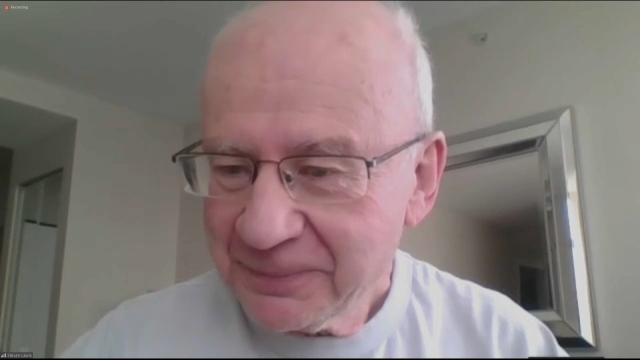Kenney's private surgery principle has already failed in Saskatchewan: policy expert
Alberta is moving forward with a plan to double the number of surgeries completed in private clinics, but don't expect that to reduce wait times or costs in the long term, a health policy expert warns.
The governing United Conservative Party wants to increase the share of surgeries that are completed in private clinics from 15 to 30 per cent, as outlined in Tuesday's throne speech.
"The wait times in this province are unacceptable and using chartered surgical facilities are one key element to be able to (reduce them)," Health Minister Jason Copping said.
Copping is finalizing a strategy to reverse surgical backlogs and the premier said that plan is motivated, in part, by what was done in Saskatchewan.
"They saw that chartered facilities were able to perform surgeries at a lower cost due to more efficient use of capital," Kenney stated.
He was referencing the 2010 Saskatchewan Surgical Initiative, which promised to reduce wait times to 90 days by 2014. But that didn't happen, an expert on the matter told CTV News Edmonton.
"Initially it did shorten wait times and over 90 per cent of people got served within three months, but then it started to go back up again, wait times got longer," said Steven Lewis, a professor at Simon Fraser University.
Lewis said backlogs in Saskatchewan are now higher than ever, and he disagrees with Kenney that private clinics are cheaper.
Although he understands the desire for governments to contract out in the short-term to clear pandemic backlogs, Lewis doesn't believe private facilities are the best long-term solution.
"If you think it's such a good idea to have free-standing facilities operating 24/7, there's no reason you can't set them up in the public system. Build them, and then you can run them on a non-profit basis. You don't need to take 10,15, 20 per cent margins off the top," Lewis argued.
 Steven Lewis, a professor at Simon Fraser University, during an interview with CTV News Edmonton on Feb. 23, 2022.
Steven Lewis, a professor at Simon Fraser University, during an interview with CTV News Edmonton on Feb. 23, 2022.
He believes the wait-time problem is a complicated one, but it can be boiled down to supply and demand. Lewis suggests Alberta would be better off with programs to train more doctors and distribute them more evenly across the province.
'THAT DOESN’T HELP ACCESS'
The government's changes are "incredibly disappointing," according to the United Nurses of Alberta, whose president also believes privatization won’t result in more surgeries being completed.
"If you only have one nurse and one surgeon and you pull those from the public system to the private system, that doesn’t help access," said Heather Smith.
Smith and the UNA want Alberta to invest in public healthcare, rather than "looking for ways to subsidize private surgical companies."
Recipients of contracts for the Alberta Surgical Initiative will be announced in March, Kenney said. He wasn't clear on when the province is projected to reach 30 per cent of surgeries in private clinics.
"Unfortunately progress on the Alberta Surgical Initiative has been delayed because of COVID pressure," Kenney said.
More details are expected to be released in the budget on Thursday.
With files from CTV News Edmonton's Chelan Skulski
CTVNews.ca Top Stories

Donald Trump says he urged Wayne Gretzky to run for prime minister in Christmas visit
U.S. president-elect Donald Trump says he told Canadian hockey legend Wayne Gretzky he should run for prime minister during a Christmas visit but adds that the athlete declined interest in politics.
Historical mysteries solved by science in 2024
This year, scientists were able to pull back the curtain on mysteries surrounding figures across history, both known and unknown, to reveal more about their unique stories.
King Charles III focuses Christmas message on healthcare workers in year marked by royal illnesses
King Charles III used his annual Christmas message Wednesday to hail the selflessness of those who have cared for him and the Princess of Wales this year, after both were diagnosed with cancer.
Mother-daughter duo pursuing university dreams at the same time
For one University of Windsor student, what is typically a chance to gain independence from her parents has become a chance to spend more time with her biggest cheerleader — her mom.
Thousands without power on Christmas as winds, rain continue in B.C. coastal areas
Thousands of people in British Columbia are without power on Christmas Day as ongoing rainfall and strong winds collapse power lines, disrupt travel and toss around holiday decorations.
Ho! Ho! HOLY that's cold! Montreal boogie boarder in Santa suit hits St. Lawrence waters
Montreal body surfer Carlos Hebert-Plante boogie boards all year round, and donned a Santa Claus suit to hit the water on Christmas Day in -14 degree Celsius weather.
Canadian activist accuses Hong Kong of meddling, but is proud of reward for arrest
A Vancouver-based activist is accusing Hong Kong authorities of meddling in Canada’s internal affairs after police in the Chinese territory issued a warrant for his arrest.
New York taxi driver hits 6 pedestrians, 3 taken to hospital, police say
A taxicab hit six pedestrians in midtown Manhattan on Wednesday, police said, with three people — including a 9-year-old boy — transported to hospitals for their injuries.
Azerbaijani airliner crashes in Kazakhstan, killing 38 with 29 survivors, officials say
An Azerbaijani airliner with 67 people onboard crashed Wednesday near the Kazakhstani city of Aktau, killing 38 people and leaving 29 survivors, a Kazakh official said.






























